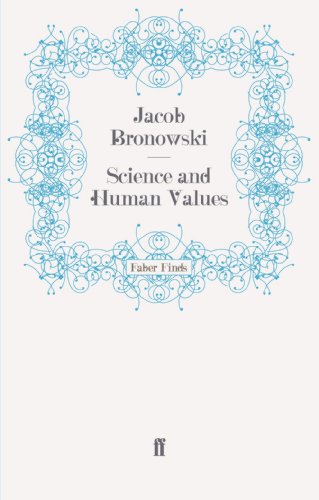The Train of Thought to Equality
Since then society has evolved a sequence of ci central con¬ cepts each of which was at one time thought to make it work of itself, and each of which has had to be corrected to the next. There was the early eighteenth-century concept of selfinterest, in Mandeville and others; then came enlightened self-interest; then the greatest happiness of the greatest num¬ bet; utility; the labor theory of valueie; and thence its expression either in the welfare state or in the clasassless society. Men have never treated any one of these conceptpts as the last, land they do not mean to do so now. What has driven them, what drives them, is the refusal to ackno^wledge the concept as either an edict or self-evident. Does this really work, they ask, without force, without corruption, and without another arbitrary superstructure of laws which do not derive from the central concept? Do its consequences fit our experience; do men in such a society live so or not so? This is the simple but profound test of fact by which we have come to judge the large words of the makers of states and systems. We see it cogently in the Declaration of Independence, which begins in the round Euclidean manner 'We hold these truths to be self-evident,'» but which takes the justification for its action at last from *a long train of abuses and usurpations': the colonial system had failed to make a workable society.
Notes:
...ending in the Declaration of Independence.
Folksonomies: politics culture society egalitarianism
Taxonomies:
/society (0.569305)
/law, govt and politics/legal issues/human rights (0.370503)
/law, govt and politics/government (0.268073)
Keywords:
early eighteenth-century concept (0.917524 (neutral:0.000000)), ci central con¬ (0.912579 (negative:-0.308557)), greatest num¬ bet (0.877208 (positive:0.563673)), *a long train (0.750286 (negative:-0.472377)), arbitrary superstructure (0.589828 (negative:-0.272785)), greatest happiness (0.583458 (positive:0.563673)), central concept (0.553847 (negative:-0.272785)), welfare state (0.547006 (neutral:0.000000)), labor theory (0.546724 (neutral:0.000000)), Euclidean manner (0.543466 (neutral:0.000000)), clasassless society (0.535299 (neutral:0.000000)), profound test (0.535020 (negative:-0.274706)), workable society (0.526380 (negative:-0.337023)), large words (0.510789 (negative:-0.274706)), Declaration (0.340111 (positive:0.253242)), men (0.312356 (negative:-0.472843)), self-interest (0.302332 (positive:0.505213)), edict (0.293850 (negative:-0.246926)), refusal (0.293052 (negative:-0.246926)), Mandeville (0.289507 (positive:0.276804)), corruption (0.274850 (negative:-0.383040)), abuses (0.274359 (negative:-0.472378)), justification (0.273176 (negative:-0.472378)), sequence (0.269197 (negative:-0.308557)), truths (0.268248 (neutral:0.000000)), consequences (0.264520 (positive:0.616151)), cepts (0.263847 (negative:-0.308557)), time (0.263681 (negative:-0.308557)), expression (0.260440 (neutral:0.000000)), conceptpts (0.259192 (negative:-0.472843))
Entities:
clasassless society:Organization (0.834649 (neutral:0.000000)), Mandeville:City (0.690089 (positive:0.276804))
Concepts:
United States Declaration of Independence (0.945359): dbpedia | freebase | yago
Truth (0.579335): dbpedia | freebase
United States (0.489828): website | dbpedia | ciaFactbook | freebase | opencyc | yago
Declaration of independence (0.475788): dbpedia | freebase | opencyc | yago
Self-evidence (0.453385): dbpedia | freebase | yago
Independence (0.446553): dbpedia | freebase
Thomas Jefferson (0.417473): dbpedia | freebase | opencyc | yago
Human rights (0.412388): dbpedia | freebase | opencyc | yago





